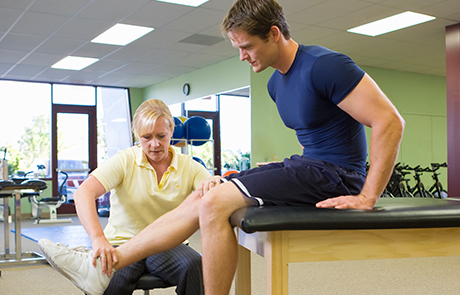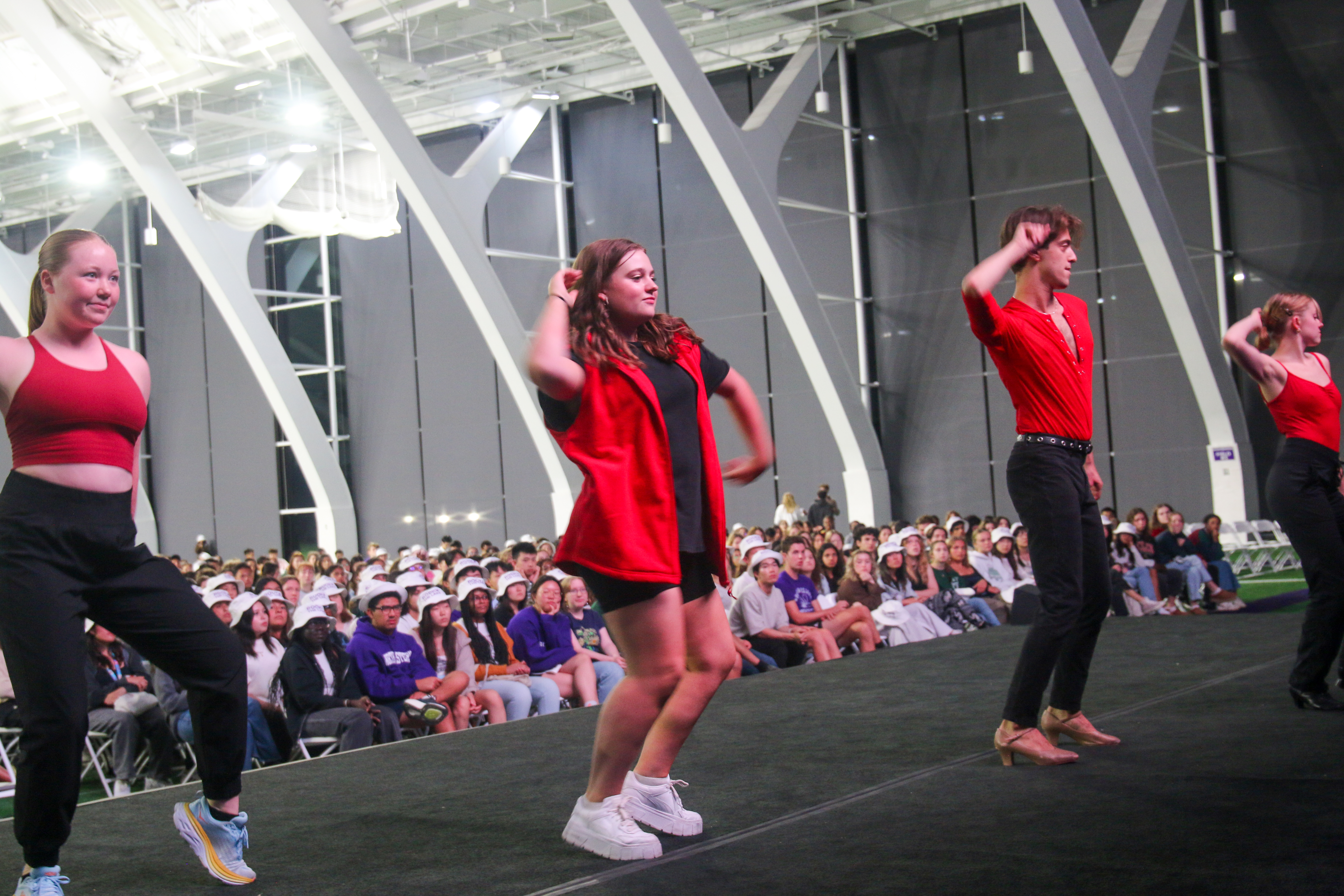Where Sports Medicine Meets the Arts
At the end of the day, whether it's your sport or your performance, it's important to you.”
Dr. Amin Farokhrani
Primary Care Sports Medicine Physician, NMSHS
Northwestern University Sports Medicine is a wellness resource for both student-athletes and student performers
Under bright stadium lights, student-athletes use the court, turf, and arena to perform for Northwestern fans, following meticulously designed game plans.
Elsewhere on campus, student performers use the stage as a playing field to execute the technique that they have honed through countless hours of practice and rehearsal.
And at the intersection of sports and the arts, you will find overuse injuries, torn tendons, hip impingements and the Northwestern Sports Medicine department.
“At the end of the day, whether it's your sport or your performance, it's important to you,” said Dr. Amin Farokhrani, a primary care sports medicine physician at Northwestern Medicine Student Health Services (NMSHS). “Our job is to make sure what's important to you gets accomplished in the healthiest, safest way possible, with some added education.”
In addition to serving Northwestern student-athletes, NMSHS offers appointments with primary care sports medicine physicians to all students, including student performers.
Dr. Kristin Abbott, currently the medical director for NMSHS and previously an assistant athletic team physician, said that while the injuries common among student-athletes and performers share similarities, student-athletes across the country traditionally have more systems of care in place.
 “There’s participation restrictions on hours for different university sports,” Dr. Abbott said. “The NCAA limits you to a certain number of hours per week of team activities. And dancers and musicians — as they are entering performance seasons — don't have that. People in theater, music or dance ensembles may be participating and rehearsing for [up to] six hours a day.”
“There’s participation restrictions on hours for different university sports,” Dr. Abbott said. “The NCAA limits you to a certain number of hours per week of team activities. And dancers and musicians — as they are entering performance seasons — don't have that. People in theater, music or dance ensembles may be participating and rehearsing for [up to] six hours a day.”
On top of this, Dr. Abbott noted that there is a fear of being unable to perform at all. For both student-athletes and performers, the wrong visit to the wrong physician may result in unnecessary breaks from activity.
School of Communication sophomore Amanda de la Fuente is the company manager for Eight Counts, Northwestern’s premiere student-run ballet contemporary group. As company manager, her hope is to facilitate a culture of mindfulness about mental and physical well-being in the dance world, which often loses out to what Fuentes called “push through” culture.
“This is our craft, this is truly all we know and love and want to do in life,” de la Fuente said. “And we grow up with this mentality that, especially in ballet if it hurts, it's working. Nobody wants to sit down and watch their friends dance for five weeks while they're stuck in a boot. Nobody wants to be told you can't dance anymore because you have a spinal injury. So instead, we just stay quiet, and we push through.”
Dr. Farokhrani’s philosophy in treating whoever walks into his office is simple: it doesn’t matter if you “play basketball or the bass.”
 Even though he doesn’t attend symphonies or musicals as a sideline physician as would for a field hockey game, Dr. Farokhrani is determined to treat his patients and their love for their craft equally.
Even though he doesn’t attend symphonies or musicals as a sideline physician as would for a field hockey game, Dr. Farokhrani is determined to treat his patients and their love for their craft equally.
“I feel that for most people, they actually leave the office less apprehensive,” he said. “I'm not here to tell you not to do something or do it. You've gotten here with the skills that I couldn't even imagine having. I'm here to tell you from my standpoint, is it safe to do something or not? And if we're in the middle, how can we modify it so that you're happy and safe?”
Even so, difficult, potentially career-ending decisions may have to be made in extreme situations. Dr. Abbott described this process as a kind of grief, a vulnerable time in which student performers or athletes experience a loss of their very identity.
When the time comes, perspectives from different specialists are considered to determine whether to continue the activity. However, the journey doesn’t end there — the hope is that the patient can work through next steps and maintain the joy of the activity in their lives in another form.
“My advice is don't leave the world, just leave that part of the world,” de la Fuente said.
The Sports Medicine team continues to consider opportunities for outreach to performance groups on campus to expand awareness of sports medicine resources.
Reflecting on their time at Sports Medicine, both Dr. Farokhrani and Dr. Abbott said they appreciated that the exchange between physicians and students is not one sided: as much as students come to learn about their bodies, they too learn from their patients.
“I'm inspired more and more by people and their journeys,” Dr. Farokhrani said “And it just reminds me why I love this seat. We're here to help but in turn, they don't know they help us a lot, especially when we go through our personal strife in life.”
Students can make an appointment with Northwestern Sports Medicine on the MyNM app or by calling 847.491.8100. There are two Evanston locations in Searle Hall and inside the Henry Crown Sports Pavilion. Physicians see patients at Searle for new evaluations and follow-up, while Athletic Trainers offer injury evaluation and rehab appointments at Henry Crown.
Chicago students can see a student health provider through Northwestern Medicine General Internal Medicine department and request referrals to sports medicine resources downtown.
